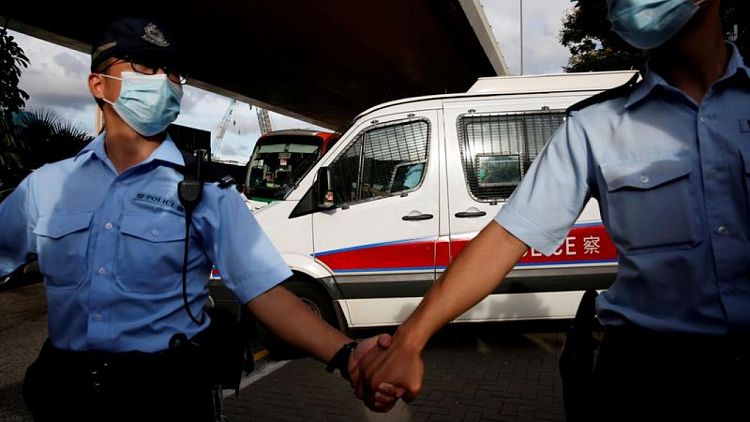HONG KONG - Three Hong Kong judges are expected to deliver a verdict on Tuesday in the trial of the first person charged under the national security law, a landmark case with implications on how the legislation reshapes the city's common law traditions.
Former waiter Tong Ying-kit, 24, has pleaded not guilty to charges of terrorism and inciting secession, as well as an alternative charge of dangerous driving causing grievous bodily harm. The acts he is accused of occurred on July 1, 2020, shortly after the law was enacted.
Tong is accused of driving his motorcycle into three riot police while carrying a flag with the protest slogan "Liberate Hong Kong, revolution of our times," which prosecutors say is secessionist.
The main charges could lead to a prison term of several years to life, while the alternative charge could be punished by up to seven years in prison.
His trial was presided over by judges Esther Toh, Anthea Pang and Wilson Chan, picked by city leader Carrie Lam to hear national security cases. Their verdict is expected at 3 p.m. local time (0700 GMT).
Tong's case is seen by pro-democracy activists and human rights groups as a departure from Hong Kong's common law traditions, as he was denied bail and a jury trial.
It is also a test of the limits of free speech in the former British colony, as the prosecution and defence argued over the meaning of the slogan, which was ubiquitous during Hong Kong's mass 2019 protests.
The governments in Beijing and Hong Kong have said repeatedly the security law was necessary to bring stability after the often-violent 2019 protests and that the rights and freedoms promised to the city upon its return to Chinese rule in 1997 remain intact.
The law, imposed by Beijing in June 2020, punishes what China sees as subversion, secession, terrorism and collusion with foreign forces.
